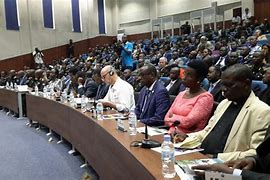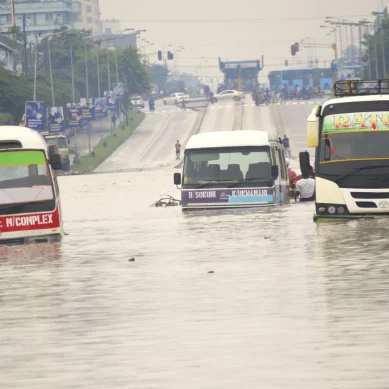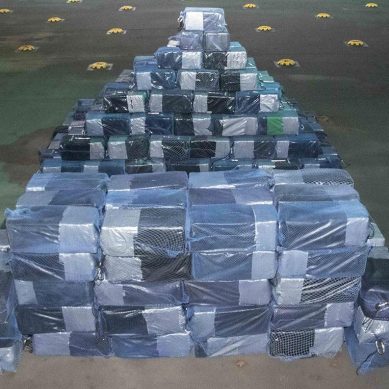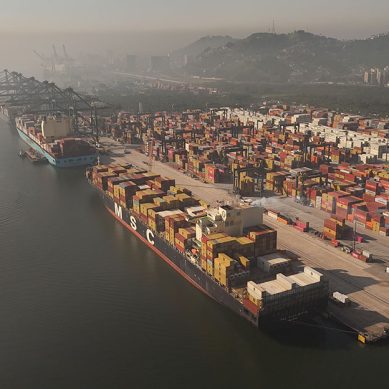
When the Banyarwanda soldiers in the National Resistance Army (NRA) decided to invade Rwanda in October 1990, President Yoweri Museveni chose to give them all the assistance they needed so that they should never come back because Ugandans were tired of their preferential treatment.
The Rwanda Patriotic Front (RPF) advance into Rwanda was also backed by about tens of thousands of Banyarwanda Tutsi (both refugees and non-refugees) in Uganda, Tanzania, Burundi and Congo. In Uganda, the chief financiers of the RPF were the likes of Mzei Donant Kananura who is still a top Museveni regime person. His son, Innocent Bisangwa was a top Museveni Bush War operative who hijacked the government plane from Entebbe to Kasese in 1985.
While Bisangwa was a Personal Assistant to Museveni in 1992, he was arrested in the USA as he attempted to smuggle a big consignment of arms to Uganda for the RPF.
By 1991 it is estimated that Banyarwanda in Uganda were 1.3 million out of a total population of 18 million in the country. Of these, 450,000 were Ugandan indigenous Banyarwanda who became Ugandans after Kisoro became part of Uganda in 1918 and 650,000 were the Banyarwanda economic immigrants who came to look for work and a few who came to look for pasture for their cattle between 1926 and 1959 of whom 84,000 were the Banyarwanda Tutsi refugees registered under UNHCR.
Many had left the refugee settlement camps and integrated into local society. In 1993 the then Minister of Local government, Dr Steven Chebrot estimated that about 300,000 Banyarwanda refugees were spontaneously resettled amongst the locals outside the camps. The able-bodied had left the camps to the elderly and settled in urban centres while others had acquired land outside camps and settled there. The UNHCR had handed the management of the camps to the government although food aid continued coming in. Even within the camps, the refugees had become self-sustaining by producing enough to feed themselves and surplus for sale.
In July 1994 when the RPF took over power in Rwanda, a reconnaissance party of Banyarwanda civilians left for Rwanda so as to get hold of political fortunes. By end of 1995, an estimated 226,000 Banyarwanda refugees had returned to Rwanda. They deserted the refugee camps and the countryside as far as Ngoma, Kyankwanzi, Masindi, Nakasongola and Luwero and moved en masse and headed for Rwanda. As the Tutsi were leaving Uganda for Rwanda, the Hutu were leaving Rwanda in millions for Tanzania and Congo. A small contingent of 11,000 Hutu entered Uganda and were camped in Kisoro and Ntungamo before being transferred to Oruchinga camp. A departing Tutsi at Oruchinga camp attempted to spear a child of an arriving Hutu but only to injure his fellow Tutsi.
The 1993 Arusha Accord between the Tutsi RPF rebels and the Hutu government of Rwanda had stipulated that returning refugees after 10 years were not to reclaim previous properties but were to be resettled on unoccupied land. Once the RPF took power, the returning Tutsi occupied property left behind by fleeing Hutu. However, as time went on, reconciliation efforts dictated that returning Hutu ought to reoccupy their property. The issue was so controversial to an extent that it accounted for the false accusations of genocide against some Hutu just as a way of keeping them off the property.
Many returned and settled in Uganda where grazing land was plenty. Those who had anticipated a land of milk and honey, they too were disappointed and retreated to Uganda where land, availability of social services and economic opportunities including employment were easily forthcoming more than in their new-found home. For the majority of others who had not left for Rwanda, they opted to stay in Uganda. Even the elites in influential positions in Rwanda have been acquiring land in Uganda through proxies.
With the sound availability of cash, the so-called Balaalo have evolved from the traditional pastoralist casual labourers to owners of thousands of heads of cattle, huge chunks of land, are armed, and determined to spread to as far as West Nile and Acholi at the border with Sudan. Museveni managed to push through the 1995 Constitution, a provision that recognised Banyarwanda as one of the 56 indigenous ethnic communities. It was not made clear if the constitutional Banyarwanda ethnic group referred to the Banyarwanda who were added into Uganda by colonial boundaries in Kisoro, the economic immigrants of the early 20th century who came to look for work, or those who came as refugees during the 1959-1974 exodus during the political turmoil.
In October 2001, the Uganda government announced that it was probing the composition of 1,252 army cadet officers after discovering that several Rwandan undercover spies posing as Ugandans had been recruited for training. The then army spokesman, Col. Keitirima confirmed that they had also turned away several Rwandans who had sought to be recruited.
In July 2002, a delegation of 30 Banyarwanda elders met Museveni for a petition over allegations of harassment of Banyarwanda by security agencies. They claimed that over 20 Banyarwanda were being held in safe houses by intelligence services. This was during the time when relations between Uganda and Rwanda were sour following the bloody clash of the two armies in the Democratic Republic of Congo (DRC). To the security agencies, the detained Banyarwanda were Rwandese spies. When he appeared on Andrew Mwenda Live radio talk-show, Kagame complained: “I was told how Rwandese are being arrested in Kampala and in Kikuko wherever they are found.”
On June 17, 2007, the government owned New Vision newspaper ran a letter by one Mutesi of Kabale in which she was complaining about Banyarwanda being denied passports. That she had had to consult her friends in security services who advised her not to state that she was a Munyarwanda but should instead call herself a Mufumbira. She went ahead to disclose that since she had worked in Kisoro as a teacher, she travelled there and using the voter’s card she filled forms, had them approved by the LCs and the area MP and eventually got her passport. She disclosed that her grandfather had migrated from Rwanda to Tanzania 100 years ago, and that her father relocated to Uganda, died and was buried in Ntungamo, Uganda.
In 2007, the local government of Kyankwanzi district offered to take in and accommodate the 100 Banyarwanda Balaalo families that had been evicted from Buliisa following clashes with Bagungu. The move was spearheaded by the LC3 chairman Fred Mpora and escorted by police. Fred Mpora has been a key figure in the incursions by Balaalo into Acholi.
In April 2008 Banyarwanda living in Uganda under their umbrella organisation, UMUBANO, held the annual assembly at Lugogo Indoor Stadium under the chairmanship of Erick Kyamuhangire who is Museveni’s senior presidential advisor on culture. The assembly expressed grave concerns over denial of passports, loss of land, denial of recruitment into public service, denial of scholarships and general discrimination by government.
Their chairman lamented thus: “…. if one happens to have a contact in Rwanda, then it’s enough reason for disqualification.” They gave the example of Balaalo who were being evicted in Masindi describing it as paid harassment before accusing the government of being biased against the Balaalo. Note: one of the key state witnesses in the Kyadondo terror attack, Muhammad Mugisha claimed to be a Ugandan who was born in Rwanda but relocated to Uganda in 1998.
- A Tell report / By The Conscious Ugandans











